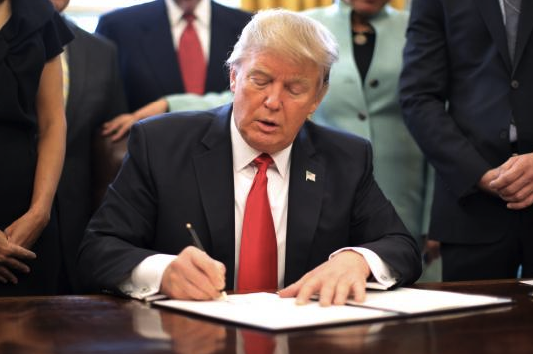Sonny Warned ‘Em–Twice, In Fact
Posted on November 29, 2018

It’s Thanksgiving week, so let’s be generous: The White House trade policy, marked by its heavy use of import tariffs and presidential tweets, continues to confound economists and trading partners alike.
A more accurate, less generous view of President Donald J. Trump’s trade policy would declare it an unhinged mess that has led to a dark, and getting darker, year for export-dependent American farmers and ranchers.
And that’s just the calendar year. The still-young grain marketing year is headed for darkness, too, if our tariff-tied export policy for friend or foe remains.
Don’t just take my word for it; here’s what Secretary of Agriculture Sonny Perdue told President Donald J. Trump in their very first White House meeting shortly after Perdue became ag chief in April 2017. The topic was Trump’s threat to pull the U.S. out of NAFTA, the generation-old trade pact between Mexico, Canada, and us.
(The remarks, all direct quotes that no one disputes, begin on page 157 of Bob Woodward’s recent bestselling book, Fear.)
“‘NAFTA has been a huge boon for American ag interests,’ Perdue told Trump… ‘We wouldn’t have markets for these products otherwise. The people who stand to lose the most if we withdraw are your base, the Trump supporters.’”
Then, relates Woodward, Perdue showed “Trump a map of the United States” to emphasize the electoral fallout from leaving NAFTA. Most of what he pointed to were presidential swing states. “‘So you just can’t do this,’” Perdue urged.
“‘Yeah,’ Trump said, ‘but they’re screwing us, and we’ve got to do something.’”
Trump’s “something” became a newly negotiated agreement that now awaits approval by all parties. Before national elections in Mexico and mid-term elections in the U.S., passage was seen as doable, albeit dicey. With Democrats retaking the U.S. House Nov. 6, American passage moves more toward dicey than doable.
A week after his defense of NAFTA, continues Woodward, Perdue was back at the White House to explain the ag consequences if the President acted on his threat to place tariffs on Chinese exports to the U.S.
“Sonny Perdue gave a presentation in the Situation Room on May 4 on the role of agriculture in trade. Sensitive intelligence showed that if the United States imposed new tariffs on China, the Chinese would retaliate with their own tariffs.”
Again, however, Perdue’s warning fell on deaf ears.
Why was Trump so fixated—and so upside down—on the economics of tariffs and trade deficits? According to Woodward, Trump’s chief economic advisor, Gary Cohn, a former president of Goldman Sachs, asked Trump “several times… ‘Why do you have these views?’”
“‘I just do,’ Trump replied, ‘I’ve had these views for 30 years.’”
“‘That doesn’t mean they’re right,’ Cohn said. ‘I had the view for 15 years I could play professional football. It doesn’t mean I was right.’”
Cohn’s point was lost on Trump. In early 2018, he hit China with $50 billion in tariffs. (Cohn resigned just before the official announcement.) As predicted, China retaliated with tariffs of its own and, in September, the White House hit China with another $200 billion of tariffs. China, again, retaliated with more of its own tariffs.
Both nations’ actions have had little impact on China’s ability to import soy and livestock feed from other nations or our own hunger for Chinese-made consumer goods. Through September, U.S. imports from China are up 8 percent over 2017 and are forecasted to set an all-time record. Go figure.
Meanwhile, on Nov. 1, Reuters reported that China imported only 132,248 metric tons (MT) of U.S. soybeans in September compared to 937,000 MT it imported last September. Similarly, U.S. corn exports to China last September were 174,965 MT; this September’s were virtually invisible: 516 MT.
Even more revealing, the overall U.S. trade deficit—in the first full year of the most protectionist, tariff-imposing Administration since Herbert Hoover—will exceed its record, set in 2008, of $816 billion.
Sonny warned the White House about the electoral and economic fallout of starting a trade war. Twice, in fact. As such, it’s hard to know what is more common in today’s White House, wooden ears or wooden heads.
Sorry, it’s Thanksgiving; make that bad policy or stubborn policymakers.
© 2018 ag comm
Share This